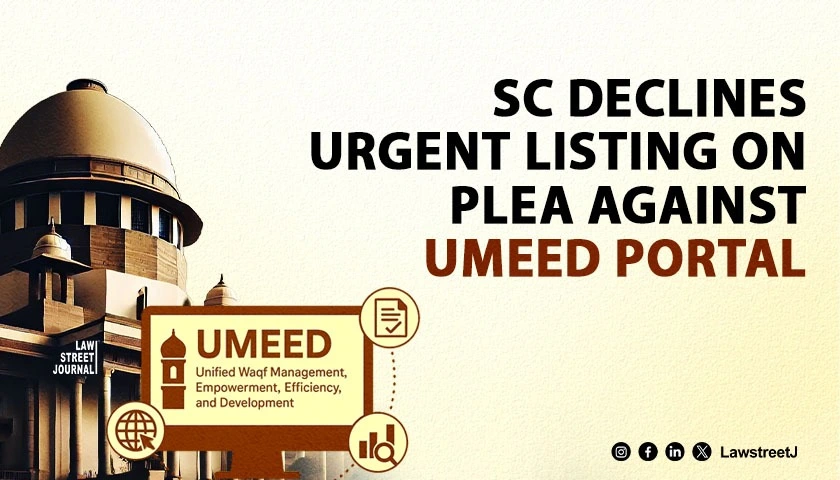NEW DELHI: The Supreme Court on Friday declined to urgently list for hearing a plea challenging mandatory registration of all waqfs, including waqf-by-users, on the UMEED portal.
A bench led by Chief Justice of India B R Gavai pointed out the court had already reserved its judgment on a batch of petitions challenging the Waqf Amendment Act.
A counsel mentioned the matter before the bench, contending that the portal called for mandatory registration of all waqfs, including waqfs by users. The lawyer said that the requirements are such that waqf-by-users cannot be registered.
“We sought to file an interim application for directions, but the registry (of the apex court) is not allowing it, saying that the judgment is already reserved,” the counsel said.
The bench told the lawyer that the court had already reserved the order in the matter.
The lawyer submitted that the clock is ticking and the Centre has given six months for registration of the properties.
The bench told the lawyer, “You register it. Nobody is refusing you the registration.”
The bench said it will deal with this aspect, maybe later.
On June 6, the central government launched the Unified Waqf Management, Empowerment, Efficiency and Development Act, 1995 (UMEED) Central Portal to create a digital inventory after geo-tagging all Waqf properties.
As per the mandate of the UMEED portal, details of all registered Waqf properties across India are to be mandatorily uploaded within six months.
A bench led by CJI on May 22, 2025 had reserved interim orders on three key issues in the waqf case.
One of the issues relates to the power to denotify properties declared as “waqf by courts, waqf-by-user or waqf by deed” prescribed in the Waqf (Amendment) Act, 2025. The other issues were denotification of waqf properties and composition of state waqf boards and the Central Waqf Council.
The central government had defended the Act, saying waqf by its very nature was a “secular concept” and emphasised that it cannot be put on hold given the “presumption of constitutionality” in its favour.
Disclaimer: This content is produced and published by LawStreet Journal Media for informational purposes only and does not constitute legal advice. The views expressed are independent of any legal practice of the individuals involved.

















